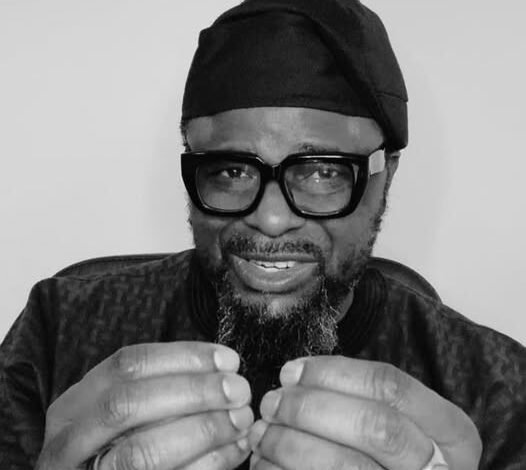The Death of Moderation: How Nigerian Media Is Losing the Moral Script: A Father’s Lament and a Nation’s Wake-Up Call
#HomilyFromThePew

In the heart of Nigeria’s media landscape once lay a sacred space, the news. It was a space where facts were presented with dignity, voices spoke with purpose, and both anchors and guests modeled respect. For a 55-year-old father like me raising a 3-year-old son in today’s world, this memory of journalism’s golden age is more than nostalgia, it is a call to conscience.
More disturbing was the public insult hurled at Reuben Abati, in his absence by Lere Olayinka, media aide to Minister Nyesom Wike. This incident, broadcast on a public holiday while children were home watching television, exposed just how far we have drifted from the ethics and elegance that once defined media practice. Mr. Olayinka threw all caution to the wind, going so far as to insinuate that Rufai Oseni was an animal. Sadly, Oseni too descended into the arena of crude exchange.
What unfolded was a spectacle of national shame: no decorum, no filters, no restraint, and no respect. A right of reply devolved into a license for verbal violence.
Would we recommend this behavior to our children as the proper response to provocation? What happened to the noble art of disagreeing without becoming disagreeable? Especially when one is a public officer’s representative, the bar should be higher. And for anchors, members of the fourth estate, there must be a commitment to impartiality. A moderator is meant to moderate, not to inflame. When they take sides or descend into the fray, they abandon their role as custodians of public reasons.
I speak not just as an observer but as someone who has been at the receiving end of this disturbing trend. On two different national stations, my hosts turned aggressors. But I chose not to respond same way, not because I lacked words, but because I understood that my words were not only being heard by those in the studio, but by Nigerians everywhere, including the younger generation. I chose restraint over retaliation. I chose to model civility.
I will not allow any anchor to drag me into the realm of roforofo or bole jaka confrontation. I believe we must return to a place where public discourse reflects dignity, moderation, and respect, because the news, once a safe space, must not become a theatre of moral chaos.
My concern is not about taking sides. It is not about who “won” the argument or who threw the first insult. My concern is for the children watching. What we are broadcasting across national television today amounts to bullying at a national level, a loud, public display of exactly what we should be shielding our children from.
Even more troubling is that this isn’t an isolated incident. We’ve witnessed similar face-offs:
- Between Rufai Oseni and Jesutega Onokpasa
- Between Rufai Oseni and Reno Omokri
And just recently, a shocking exchange between Senator Onyekachi Nwaebonyi of Ebonyi North and elder stateswoman Oby Ezekwesili during a Senate committee hearing on a petition brought by Senator Natasha Akpoti-Uduaghan.
Before national and international media, decorum was abandoned. Elder statespersons and elected officials descended into a spectacle of verbal abuse and public altercation. While many took sides, I took notes, notes on just how far we have strayed. It was, without question, a national shame. No party is exonerated: both the one who threw the first salvo and the one who returned fire were equally out of line.
These are conversations that should not occur even in private where civility is a code of conduct, let alone be aired publicly for millions to witness. And as if that weren’t enough, just the other day, a current affairs program, on national and international TV went further downhill, advocating that infidelity in marriage should be accepted as the inevitable creed of that sacred institution, a blatant contradiction of the vows couples make to each other.
All of this reinforces my greatest concern: news is no longer safe.
Current affairs, once a dignified space for learning, civility, and national consciousness, have turned into current fiascos. As a child, I was encouraged to watch the news. In school, we were assigned to write summaries of national broadcasts. The news was educational. It was formative.
But now? I cannot, in good conscience, allow my 3-year-old son to sit beside me while the news is on. That, to me, is the real tragedy.
News was once sacred ground. I began consuming news at age 6 or 7, influenced by my father, a voracious newspaper reader. We had copies of Daily Times, Nigerian Tribune, Sketch, Observer, Herald, and later, Vanguard, The Punch, and many more. My first encounter with public discourse came through these pages. At 13, I was reading newspapers to my grandmother, who was deeply interested in the activism of her son, Chief Gani Fawehinmi. That early exposure led to the publication of my first article in The Punch on June 10, 1988, when I was only 18.
By the age of 25, I had already appeared on television as a guest, after earlier appearances on radio. At 30, April 1, 2000, I was invited onto One-on-One, hosted by the respected veteran Adesuwa Onyenokwe. She then remarked that, apart from the beauty queens who had graced the show, I was the youngest person ever interviewed. The program, arguably Africa’s first phone-in current affairs personality interview show, boasted over 30 million viewers at the time.
Today, there is hardly a notable Nigerian newspaper I haven’t written for including those I avidly read while growing up. I’ve maintained weekly columns in five leading national dailies, two of which ran uninterrupted for five years. I’ve appeared on virtually every major television station in Nigeria, and that footprint has expanded internationally.
The bibliography of my media appearances and contributions, dating from 1988 to the present, is now over 400 pages long, with more than 3,000 individual entries, all archived on my website. I continue to journal daily.
All of this, I believe, is the fruit of early exposure, because back then, news was safe.
My worldview was shaped by the voices of reason and courage I heard and read. Broadcasters like Bankole Akinlami and Ige Jongbo were early influences. In electronic media, I remember Sola Odunfa, Ernest Okonkwo, Ohi Alege, Bisi Olatilo, John Momoh, Cyril Stober, Efunke Mariam Stober, Nasir Danladi Bako, Yinka Craig, Frank Olize, Sienne Allwell-Brown, Ruth Benamaisia-Opia, Lola Alakija, and Bimbo Oloyede, voices that inspired trust.
Columnists like Alade Odunewu a.k.a. Allah De, Pini Jason (Pini Jason Onyegbadue), Sam Amuka‑Pemu (Uncle Sam), Gbolabo (Gbadebo) Ogunsanwo and later Edwin Madunagu, Adidi Uyo (Language on Parade), Olatunji Dare, and Owei Lakemfa shaped my mind with their incisive, ethical commentary. I devoured the works of Newswatch pioneers, Dele Giwa, Dan Agbese, Ray Ekpu, Yakubu Mohammed, and those of Tell Magazine founders like Nosa Igiebor, Onome Osifo-Whiskey, Dele Omotunde, Dare Babarinsa and Ayodele Akinkuotu.
I followed the voices behind The News, Tempo, and PM News, Bayo Onanuga, Ojudu Babafemi, Kunle Ajibade, Dapo Olorunyomi, Idowu Obasa, and Seye Kehinde (who later founded City People). I respected the rigor and commitment of living and respected veterans Richard Akinnola II, Eze Anaba, Deba Uwadiae, Abdul Oroh, and Augustine Okhiria Agbonsuremi, who covered the judiciary with distinction. And of course, May Ellen Ezekiel Mofe-Damijo (MEE), who started Classique Magazine and elevated women’s journalism. Dele Momodu, who edited Weekend Concord, edited Classique Magazine and eventually founded Ovation, a print and innovative precursor to Instagram.
This generation must understand that the media is not just a mirror, it is a mold. What we allow on TV becomes part of our national DNA. Children imitate what they see. And if what they see is verbal combat and uncensored aggression on the news, then we have failed.
We must revisit the ethics of broadcasting. We need:
- A code of conduct for anchors and guests.
- Enforced standards of civility and decorum.
- Parental advisories and scheduling that protect children.
- A national dialogue on restoring honour to journalism.
News must be safe again. Not sensational. Not theatrical. Safe.
Because the values we model in the studio shape the culture on the streets.
Let us raise our standards, not just our voices.
Do have an INSPIRED week ahead with the family.





